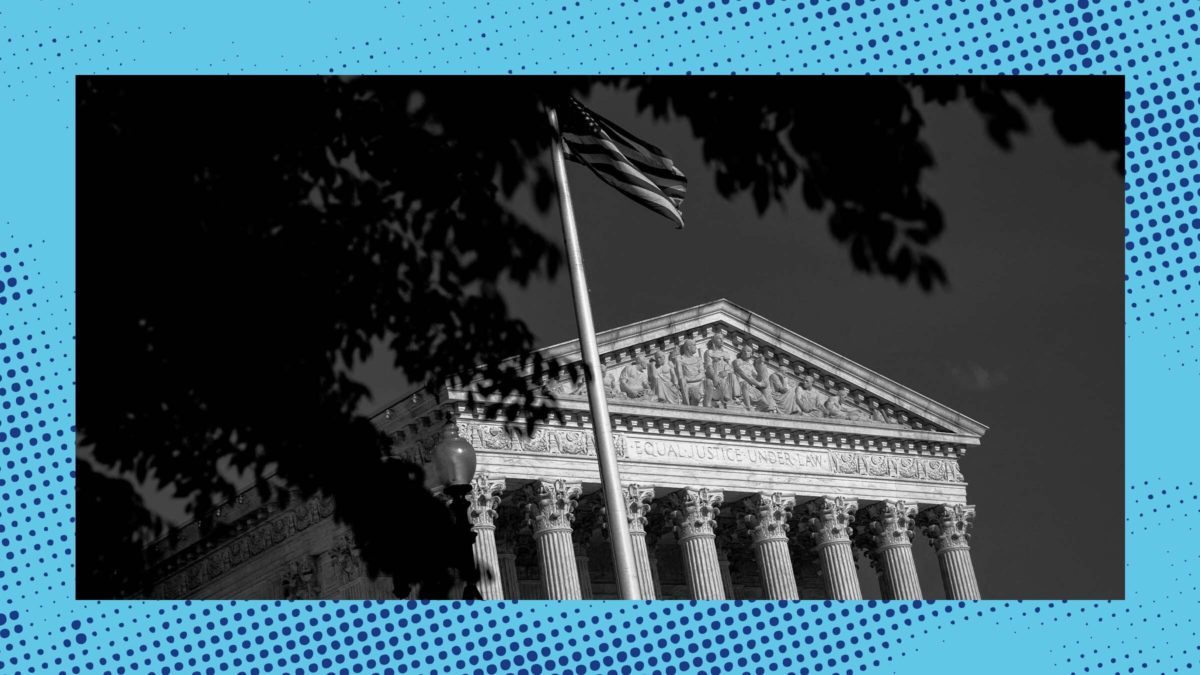Last week, the Supreme Court issued its opinion in Cummings v. Premier Rehab Keller, a case about whether laws that protect against disability discrimination allow victims to recover damages for their emotional distress. In a 6-3 decision authored by Chief Justice John Roberts, the Court decided that they do not. The decision marks a shift in the law that previously allowed for this type of damages, and opens the door for the further weakening of laws that prohibit discrimination against race, gender, sex, disability and age.
Jane Cummings has been deaf since birth and is legally blind, and uses American Sign Language to communicate. In October 2016, she sought physical therapy for chronic back pain at a Dallas-area rehab facility, Premier Rehab Keller. Multiple doctors had referred her there, touting it as the best physical therapy provider in the area.
Cummings asked the facility to provide her with an ASL interpreter for her appointments, explaining that her blindness prevents her from communicating by reading lips or gesturing because of her blindness. The facility refused, suggesting that she bring her own interpreter or communicate with her therapist in ways she had already told them she could not.
Twice more, Cummings requested physical therapy services from Premier Rehab Keller; twice more, it refused to provide an interpreter. Cummings was eventually forced to go elsewhere, and later sued the rehab facility under the Rehabilitation Act, a 1973 statute that prohibits anyone who receives federal funding from discriminating against people with disabilities. In her complaint, Cummings wrote that her experiences at Premier Rehab Keller caused her to “suffer humiliation, frustration, and emotional distress.”
Under the Rehabilitation Act, providers like Premier Rehab Keller are supposed to offer interpreters for hard-of-hearing patients if “necessary to afford such persons an equal opportunity to benefit from the service.” The Court has long recognized a right to sue to vindicate these rights; as a recipient of Medicaid and Medicare funds, Premier Rehab Keller’s liability here should have been pretty clear.
The district court, however, dismissed Cummings’ complaint, claiming that she had suffered only emotional distress, which it held is not redressable under the Rehabilitation Act. Judge John McBryde, a President George H. W. Bush appointee, held that plaintiffs suing under antidiscrimination statutes like this one are limited to recovering their actual monetary losses. Because a right to compensation for emotional distress would be “unforeseeable” for recipients of federal funds, McBryde explained, it would be unfair to expect them to pay up for causing psychological harm. A three-judge panel of the Fifth Circuit Court of Appeals affirmed.
The Court’s conservatives are very concerned about ensuring that marginalized people never profit too much from their suffering.
In his majority opinion, Roberts agreed, reasoning that monetary damages for emotional harm is an “unusual” and “rare” remedy in contract law. Citing a 2002 decision in which the Court ruled that Rehabilitation Act plaintiffs could not seek punitive damages—compensation designed to punish the wrongdoer—Roberts reached the same conclusion about emotional distress claims, finding them to be beyond what plaintiffs should be able to ask for. The justices in the majority seemed unable to wrap their heads around the idea that being discriminated against for something one cannot change might be a predictable cause of emotional distress.
Justice Stephen Breyer, joined by Justices Sonia Sotomayor and Elena Kagan, dissented. Laws that target intentional, invidious discrimination, Breyer explained, are about “the vindication of human dignity and not mere economics.” And since “emotional injury is the primary (sometimes the only) harm caused by discrimination,” he concluded, barring people from recovering from this injury would effectively hollow out the statute altogether.
The Cummings decision’s impact may not be limited to Rehabilitation Act jurisprudence. As Breyer noted, the Act has the same basic structure as Title VI, which bars race discrimination by recipients of federal funds; Title IX, which prohibits sex discrimination; and parts of the Affordable Care Act that protect against race, sex, disability, and age discrimination. Future courts could use the logic of Cummings to limit the remedies available to people suing under these laws, too.
Undergirding the Court’s decisionmaking here is a desire to ensure that marginalized people never profit too much from their suffering. A frequent concern of the conservative majority is the notion that common folk who seek to vindicate their rights are abusing the legal system, trying to get one over in pursuit of a fortuitous windfall. To these justices, people who experience discrimination are not victims who deserve protection; they are greedy vultures whose hunger must be contained.

